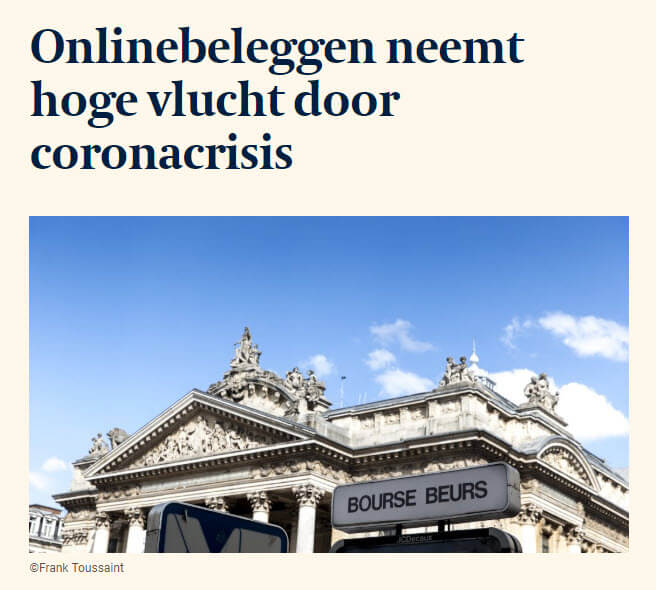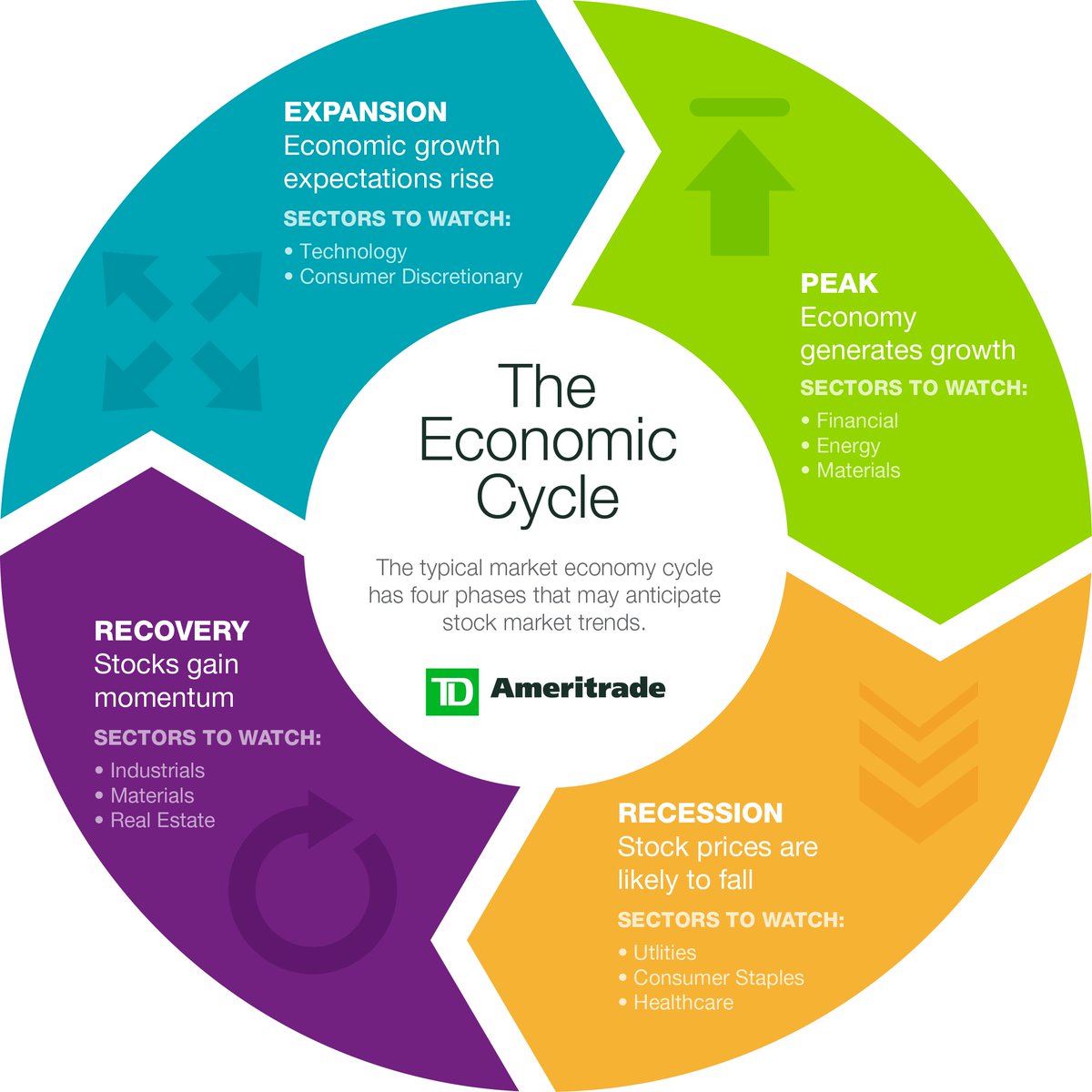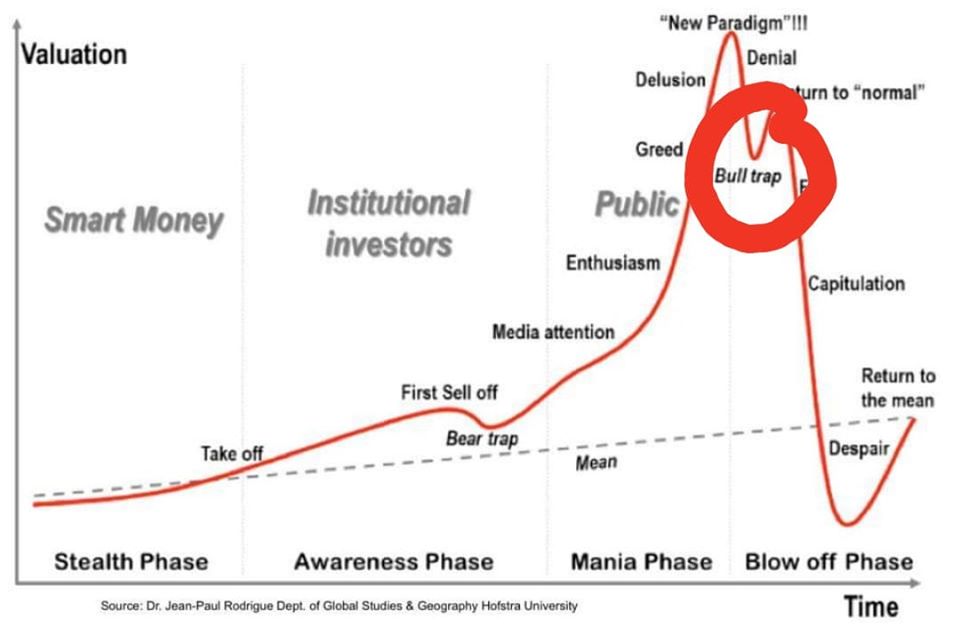When thinking about the right picture for this blog post, I searched on Google for “The New Normal” and let it show me what picture would be appropriate for this blog post. One picture showed wild waves of the sea and this made me think… Yes, the current stock markets have been wild waves the past month.
So on the website LazyPenguins, I selected a picture of Ray Collins, a photographer who is fascinated by making pictures of sea waves. Check him out on this link as he has impressive work. I had no clue sea waves could be so beautiful. In the meantime, the corona virus has pushed more than 1 million Belgian people in temporary unemployment. For many people, it’s more and more difficult to pay the bills. Singles and students have barely a financial buffer when their base salary or income vanishes. As a result, we notice more people running to the bank for an additional loan. Let’s hope the debt doesn’t become too big for those people.
The Retail Investor is Back !

Another phenomenon that appeared on the first page of the Financial Newspaper De Tijd, is the rush from retail investors to Online Investing Broker platforms such as KBC Bolero, BinckBank and Degiro. KBC Bolero saw their new customer base increase with 700% !
Many retail investors think NOW is the right moment to invest, says Dieter Haerens, CEO of BinckBank Belgium. The stock market has dropped 32% from the peak of February and this offers a buying opportunity. Another reason according to Dieter Haerens is the fact that most people are at home and have time to think and act. Those retail investors are buying trackers and stocks. The online brokers report that 70% of the transactions are BUY orders.
Many new investors have found that soon after buying their first stock, its value drops. It makes for a disappointing introduction to the world of investing, but it can also prove to be a valuable wake-up call, inspiring you to learn everything you can about investing in the markets. While investing in financial markets over the long-term is an excellent path to wealth, it’s not unusual to experience occasional losses as investment values go up and down.
Not Understanding Market Cycles
People often lose money in the markets because they don’t understand economic and investment market cycles. Business and economic cycles expand and decline. The boom cycles are fostered by a growing economy, expanding employment, and various other economic factors. As inflation creeps up, prices rise, and GDP growth slows, so too does the stock market decline in value. Investment markets also rise and fall due to global events. One the first day of trading after 9/11 (Sept 17, 2001), the Dow fell 7.1%, the biggest one-day point loss in the index’s history. If you sold during the week following 9/11, your investments most likely would have lost money.
 But if you’d held fast and done nothing after the decline, you would have been rewarded for your steadiness: Within a month of the attacks, the Dow Jones, Nasdaq, and S&P 500 were back to where they were before the attacks. Today we are at the beginning of a recession. Maybe we are already in it. One out of five Belgian companies may not have enough cash to survive the corona crisis impact. The earnings season starts in April and based on economists forecasts, more BAD data is coming. At times when revenues of companies have completely vanished due to the corona virus, the retail investor starts buying….
But if you’d held fast and done nothing after the decline, you would have been rewarded for your steadiness: Within a month of the attacks, the Dow Jones, Nasdaq, and S&P 500 were back to where they were before the attacks. Today we are at the beginning of a recession. Maybe we are already in it. One out of five Belgian companies may not have enough cash to survive the corona crisis impact. The earnings season starts in April and based on economists forecasts, more BAD data is coming. At times when revenues of companies have completely vanished due to the corona virus, the retail investor starts buying….
Behavioral finance—the marriage of behavioral psychology and behavioral economics—explains why retail investors make poor decisions. Understanding basic behavioral finance concepts and learning to manage our emotions can help you to avoid a good deal of losses during your investment lifetime.
For example, following the herd mentality is one of the worst behavioral finance mistakes, and it plays out whenever you follow the investing crowd. Herding in investing occurs when you make investments based on whatever choices “the group” is making, without performing your own evaluation of current information. To avoid losing money in the markets, don’t follow the crowd and don’t buy into overvalued assets.
In the late 1990s venture capitalists and individual investors were pouring money into internet dot com companies, driving their values sky high. Most of these companies lacked fundamental financial stability. Investors, afraid of missing out, continued to listen to the popular press and follow the herd with their investment dollars. What followed was the dot com crisis and complete collapse of certain companies where a lot of retail investors lost a lot of money…
Is this the RIGHT TIME to buy?
When you invest your money in the stock market, you always have to ask yourself the question “how do you want to grow your money?” There are only two ways to grow your money. The first one is capital gains. and the second one is dividend payouts. What happened over the past week ? We have seen companies announce dividend cuts across the board.
U.S. companies are expected to slash dividends at a rate not seen since the global financial crisis. A total of 21 companies in the S&P 500 Index, including Starbucks Corp., Simon Property Group Inc., and Royal Caribbean Cruises Ltd., are projected to trim their payouts in the second quarter, according to forecasts from Bloomberg specialists. That would be the most since early 2009, the tail end of the global financial crisis. Companies are cutting back on shareholder returns, seeking to preserve cash at a time when the corona virus pandemic threatens to throw the economy into one of the deepest contractions in decades. Ten firms, including Delta Air Lines Inc., Ford Motor Co. and Macy’s Inc., have said that they will suspend their dividends in the second quarter — a rare move for S&P 500 members. Of course, not all companies are ill-positioned. Some are even expected to continue to increase dividends, such as International Business Machines Corp., Johnson & Johnson and Apple Inc.

So would you invest your money as a retail investor in this situation ? There are many significant unknowns, such as how long the virus will take to be fully contained and, by extension, how long economic activity will remain disrupted.
Final Thoughts
So with all this available time, what should we do now ? Should we just accumulate our cash now ? Well, based on the questions I get from the blog followers, I would say…
- Have you created your Expenses & Income overview yet and re-evaluated your emergency fund ? Some people clearly haven’t foreseen the fact that they could become unemployed and don’t have any financial buffer. Start with this ! How long and how many months can your family survive with the available liquid cash available ? Can you give me an immediate answer?
- If you want to invest your money or if you are a “DIE HARD” ETF investor who believes this will be over soon, create a sensible investment plan, and follow it. Control your emotions when we drop another 20, 30 or maybe 60%…
- Option 3 is to wait on the sideline and/or start to invest in growth and value companies that have a STRONG balance sheet with little to no impact from the economic disruption.
Nobody can predict the stock markets going forward. Personally I prefer option 3. When the average retail investor starts buying, it’s definitely NOT the right time to buy. This bear market just started…
So this is the NEW Normal for (Dividend) investors. We are entering a new economic market cycle and dividends are being cut in different sectors. Invest wisely or build up cash for new smart investments going forward. Time will tell where we go. Invest in your financial literacy when you are at home !
This is the end of this blog post.
Have you subscribed yet to our Monthly newsletter? Life can be busy sometimes and people lose track of following a personal finance and travel blog. Subscribe and you will get one email per month highlighting what you missed…
Thanks for following us on Twitter and Facebook and reading this blog post. We end with a quote as always.


No Comment
You can post first response comment.